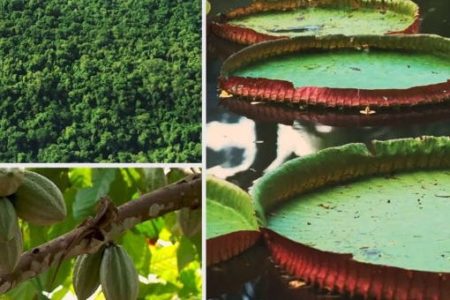October 2, 2019 – Since the Climate Summit in the United Nations over a week ago, Brazil has been running television advertising extolling its conservancy of the rainforest, its sustainable forest management practices, and the beauty of its natural resources. There is no doubt that the last point is true, but as for the rest, hogwash!
As reported in today’s Guardian, the land-grab is on in the Amazon in an offensive against indigenous tribes there and with the complicity of Jair Bolsonaro’s government. It didn’t begin with Bolsonaro. Brazil even under its past two conservative and socialist regimes talked the good talk when meeting with foreign dignitaries and the United Nations, while doing very little to stop illegal logging, mining, poaching, land-grabbing, the government, and the intentional burning of the rainforest.
In the past week the Brazilian Indigenous Missionary Council, a human rights group noted that since the beginning of 2019, 153 tribal areas had been invaded compared to 76 the year before. Roque Paloschi, Indigenous Missionary Council head, commented on the colonial attitude of the Bolsonaro government and its desire to exploit the resources of the Amazon at the expense of destroying native culture and habitat. He stated, “what kind of progress, and for whom?” when asked to comment about the many reports the Council has received in 2019.
When the Portuguese arrived off the coast of Brazil in 1500 it is estimated that between 3.5 and 11 million lived within the boundaries that would become the nation. They constituted 2,000 tribes and by 1600 almost 90% had succumbed to imported diseases with tens of thousands more enslaved to work on rubber and sugar cane plantations. By 1900 the number is believed to have declined to as little as 70,000, hard to verify because of no formal census taking and so many tribes in remote areas of the Amazon. Throughout the early decades of the 20th century on average one tribe became extinct every year.
In 1967 a government report cataloged the thousands of atrocities and crimes committed by Brazilians against its native tribes. In one incident a rubber plantation owner wishing to clear indigenous people off a tract of land had his employees throw dynamite into a native village and massacre the survivors with machetes.
In the 1970s the government’s “a land without men for men without land” campaign was launched to open up the Amazon to development and involved building roads through the rainforest without regard to indigenous land claims. This was followed by hydroelectric dams, new mines, and cattle ranches being established on native land.
It was only in 1988 that Brazil’s indigenous people were given protected areas. By 2000, the indigenous population had recovered to 350,000, and today that number is approaching one million. The arrival of Bolsonaro, however, has once more put the rights of Brazil’s indigenous peoples in peril. You wouldn’t know that from the public relations spectacle put on at the United Nations Climate Summit when the president donned a necklace ornament from one of Brazil’s indigenous tribes and proclaimed “Brazil now has a president who cares about those who were here before the arrival of the Portuguese in 1500.” Not a word of that statement is true unless you put a new meaning to the word “cares.” Because today, the Bolsonaro regime is building dams and mines in areas where native tribes exist that have never seen other Brazilians. Conditions for many native Brazilians is marginal at best, and horrendous at worse. Natives continue to be targeted by private militias hired by ranchers and mining companies. There have been many murders and few reported.
An Indigenous group called Survival is trying to fight back and help over 200 native groups to defend their rights and rise out of poverty. Survival is recording ceremonies, rituals, and native languages. Tribes are preserving Amazonian native plants to ensure the rainforest’s genetic diversity. They are also funding sustainable development projects to ensure they can both control and survive on their own land. There is a caveat, however. To date, Brazil is one of the two South American countries that does not formally recognize exclusive indigenous ownership over their lands. The other is Brazil’s southern neighbour, Paraguay.
So when next you are watching CNN and see Brazilian government advertising extolling the country’s virtuous concerns about preservation of the Amazon, recognize it for what it is, blatant propaganda.









